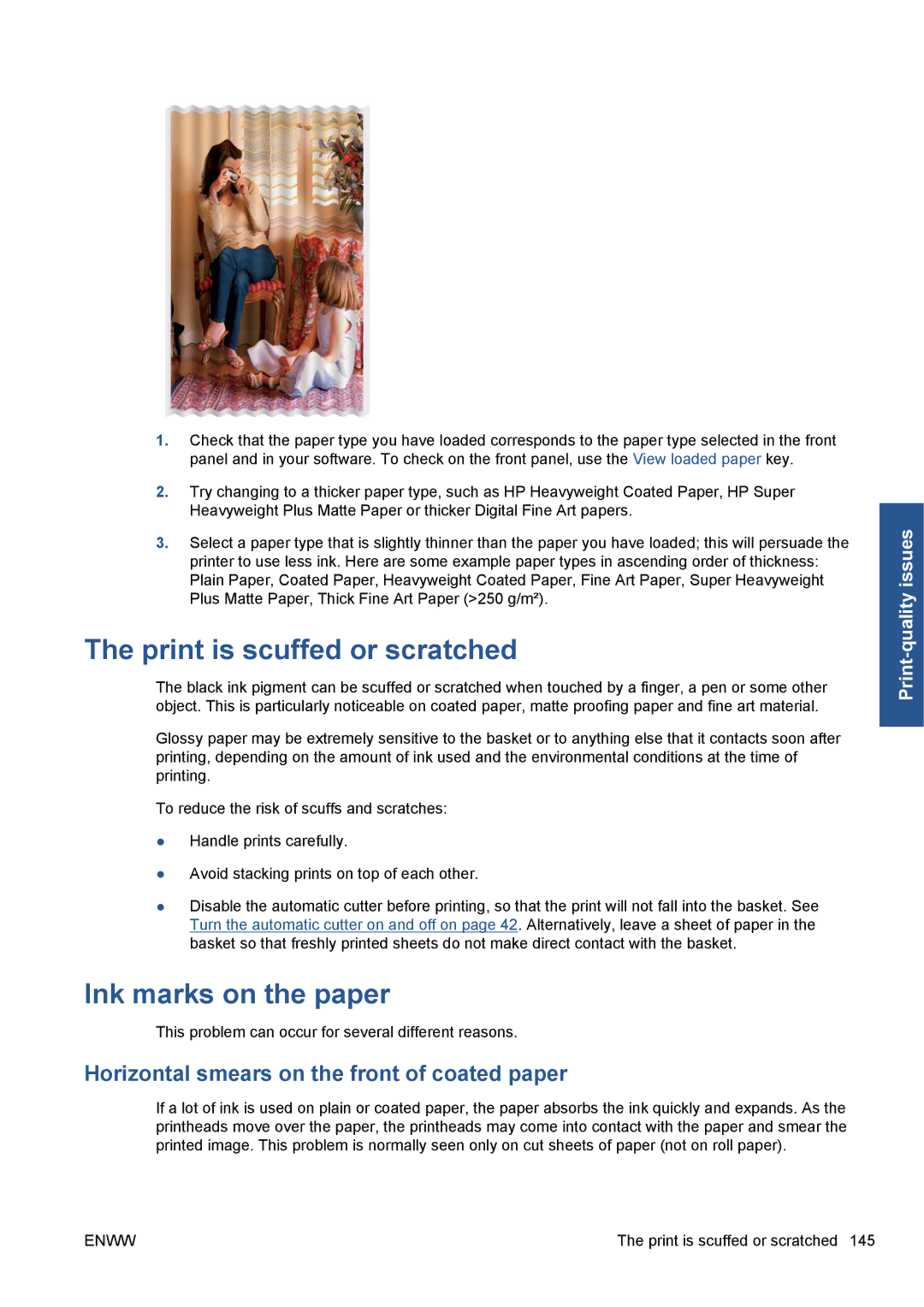
1.Check that the paper type you have loaded corresponds to the paper type selected in the front panel and in your software. To check on the front panel, use the View loaded paper key.
2.Try changing to a thicker paper type, such as HP Heavyweight Coated Paper, HP Super Heavyweight Plus Matte Paper or thicker Digital Fine Art papers.
3.Select a paper type that is slightly thinner than the paper you have loaded; this will persuade the printer to use less ink. Here are some example paper types in ascending order of thickness: Plain Paper, Coated Paper, Heavyweight Coated Paper, Fine Art Paper, Super Heavyweight Plus Matte Paper, Thick Fine Art Paper (>250 g/m²).
The print is scuffed or scratched
The black ink pigment can be scuffed or scratched when touched by a finger, a pen or some other object. This is particularly noticeable on coated paper, matte proofing paper and fine art material.
Glossy paper may be extremely sensitive to the basket or to anything else that it contacts soon after printing, depending on the amount of ink used and the environmental conditions at the time of printing.
To reduce the risk of scuffs and scratches:
●Handle prints carefully.
●Avoid stacking prints on top of each other.
●Disable the automatic cutter before printing, so that the print will not fall into the basket. See Turn the automatic cutter on and off on page 42. Alternatively, leave a sheet of paper in the basket so that freshly printed sheets do not make direct contact with the basket.
Ink marks on the paper
This problem can occur for several different reasons.
Horizontal smears on the front of coated paper
If a lot of ink is used on plain or coated paper, the paper absorbs the ink quickly and expands. As the printheads move over the paper, the printheads may come into contact with the paper and smear the printed image. This problem is normally seen only on cut sheets of paper (not on roll paper).
ENWW | The print is scuffed or scratched 145 |
